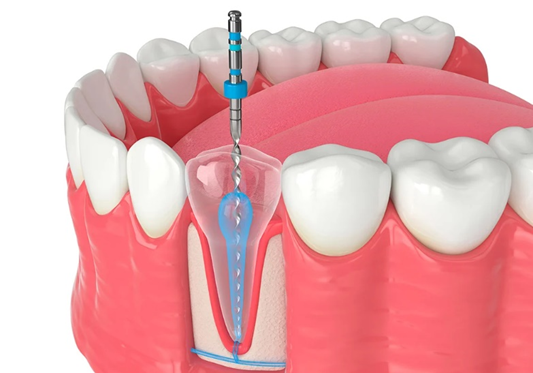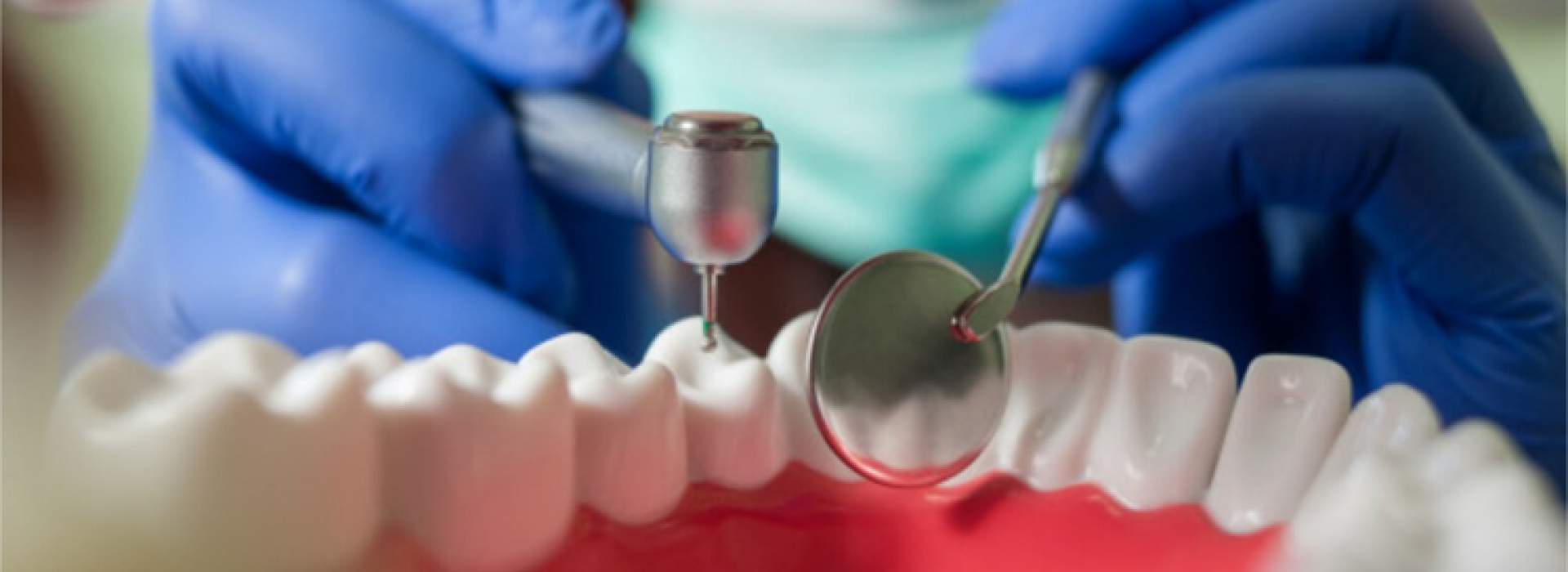It is a dental treatment that is performed to save teeth that are infected or decayed, either in part or in its entirety, is the last resort to preserve those pieces that have some affection in the nerve (pulp) tooth and its periphery.
The treatment is performed under local anesthesia, so it is not painful. It is true that, once the anesthesia has worn off, the patient may feel some discomfort when chewing during the following days.
Endodontics is indicated when there is widespread decay or tooth fracture that has caused inflammation or death of the dental pulp. The treatment is performed to keep the tooth healthy so that it is useful for chewing, avoiding having to extract the tooth.
Some of the most common symptoms that may suggest the need for a root canal are:
- Pain
- Sensitivity to heat or cold in a prolonged manner.
- Sensitivity when chewing and to the touch
- Swelling and discoloration of the gums
Advantages of endodontics:
- Avoids the extraction of a natural tooth.
- Avoids halitosis and other consequences.
- It is a painless treatment.
- Restores chewing without discomfort.
- Prevents more expensive dental treatments.
Types of endodontics
- Uniradicular endodontics
- Biradicular Endodontics
- Multi-radicular Endodontics
During endodontics, at Ideal Dental we access the dental pulp through a perforation in the crown of the tooth. After that, they remove the infected tissue and clean the reticular canals. Once the area is disinfected, finally comes the filling phase. This consists of filling and sealing the cleaned canals with inert material.
In some cases, tooth reconstruction is necessary. After an endodontic treatment, our professionals will return to the patient to restore the affected tooth to its original appearance.

Ideal Dental are registered dental professionals, as our dentists, can perform endodontics. Whatever the option, you can be assured that it is safe and effective.
Remember that you can request your appointment for a review of Endodontic treatment at: Ideal Dental
